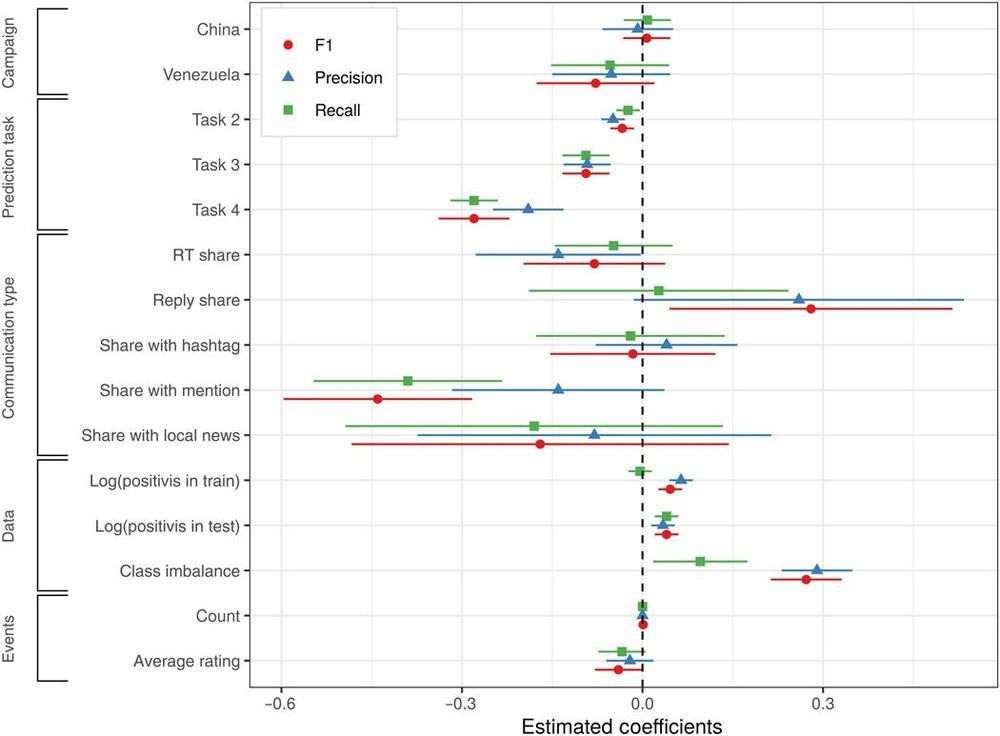Researchers have developed an automated machine learning system they say can detect social media posts involved in coordinated political influence campaigns—such as Russia’s alleged efforts to sway the results of the 2016 elections in the United States—regardless of platform and based only on the content of the posts.
Read more in Science Advances.
We study how easy it is to distinguish influence operations from organic social media activity by assessing the performance of a platform-agnostic machine learning approach. Our method uses public activity to detect content that is part of coordinated influence operations based on human-interpretable features derived solely from content. We test this method on publicly available Twitter data on Chinese, Russian, and Venezuelan troll activity targeting the United States, as well as the Reddit dataset of Russian influence efforts. To assess how well content-based features distinguish these influence operations from random samples of general and political American users, we train and test classifiers on a monthly basis for each campaign across five prediction tasks. Content-based features perform well across period, country, platform, and prediction task. Industrialized production of influence campaign content leaves a distinctive signal in user-generated content that allows tracking of campaigns from month to month and across different accounts.
The same features that make social media useful to activists—low barriers to entry, scalability, easy division of labor, and freedom to produce media targeted at any given country from almost anywhere in the world (1, 2)—also render it vulnerable to industrialized manipulation campaigns by well-resourced actors, including domestic and foreign governments. We define coordinated influence operation as (i) coordinated campaigns by one organization, party, or state to affect one or more specific aspects of politics in domestic or another state, and (ii) through social media, by (iii) producing content designed to appear indigenous to the target audience or state. South Korea conducted the first documented coordinated influence operation on social media in 2012. Since then, what some term political astroturfing has spread widely [on this phenomenon in U.S. domestic politics, see ].
